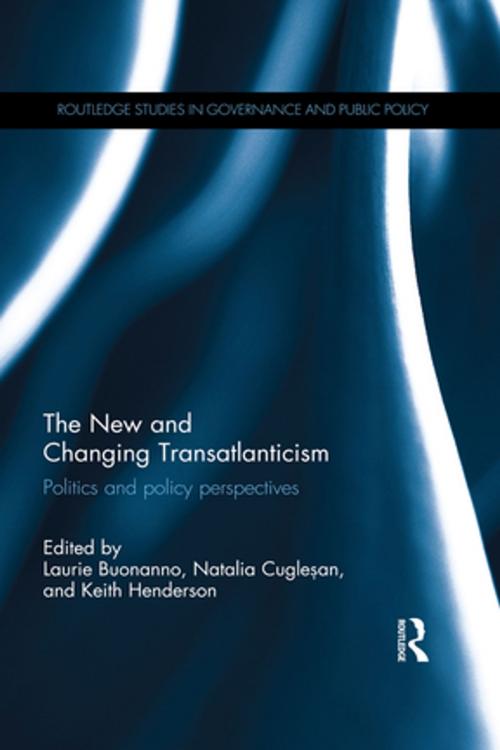The New and Changing Transatlanticism
Politics and Policy Perspectives
Nonfiction, Social & Cultural Studies, Political Science, Government, Public Affairs & Administration, Public Policy| Author: | ISBN: | 9781136266461 | |
| Publisher: | Taylor and Francis | Publication: | March 24, 2015 |
| Imprint: | Routledge | Language: | English |
| Author: | |
| ISBN: | 9781136266461 |
| Publisher: | Taylor and Francis |
| Publication: | March 24, 2015 |
| Imprint: | Routledge |
| Language: | English |
The European Union and the US are currently negotiating the Transatlantic Trade and Investment Partnership (TTIP), with potentially enormous economic gains for both partners. Experts from the European Union and the US explore not only the groundwork laid for TTIP under the "New Transatlanticism," but also the key variables – economic, cultural, institutional, and political – shaping transatlantic policy outcomes.
Divided into four parts, Part I, consisting of three chapters, contextualizes the transatlantic relationship with an historical survey, contemporary foreign relations and policy, and cultural dynamics. Together, these chapters provide the background for understanding the evolving nature of the EU–US relationship. Part II of this volume focuses on governance and comprises two chapters – one on transatlantic governance and the other administrative culture. Part III consists of six policy chapters: competition, trade, transport, mobility regimes, financial services regulation, and GMOs. Part IV, consisting of three chapters, explores prospects and challenges associated with transatlanticism, including the TTIP. The last chapter concludes with lessons learned and future challenges with respect to policy convergence; the nature of the EU–US relationship; power, resources, and bargaining within the transatlantic partnership; and, an assessment of the future of deeper cooperation and integration.
This insightful account into policy cooperation between the EU and the US is a welcomed resource for policy specialists oriented toward comparative public policy wishing to enter the arena of Transatlantic Studies.
The European Union and the US are currently negotiating the Transatlantic Trade and Investment Partnership (TTIP), with potentially enormous economic gains for both partners. Experts from the European Union and the US explore not only the groundwork laid for TTIP under the "New Transatlanticism," but also the key variables – economic, cultural, institutional, and political – shaping transatlantic policy outcomes.
Divided into four parts, Part I, consisting of three chapters, contextualizes the transatlantic relationship with an historical survey, contemporary foreign relations and policy, and cultural dynamics. Together, these chapters provide the background for understanding the evolving nature of the EU–US relationship. Part II of this volume focuses on governance and comprises two chapters – one on transatlantic governance and the other administrative culture. Part III consists of six policy chapters: competition, trade, transport, mobility regimes, financial services regulation, and GMOs. Part IV, consisting of three chapters, explores prospects and challenges associated with transatlanticism, including the TTIP. The last chapter concludes with lessons learned and future challenges with respect to policy convergence; the nature of the EU–US relationship; power, resources, and bargaining within the transatlantic partnership; and, an assessment of the future of deeper cooperation and integration.
This insightful account into policy cooperation between the EU and the US is a welcomed resource for policy specialists oriented toward comparative public policy wishing to enter the arena of Transatlantic Studies.















